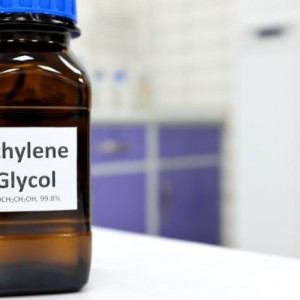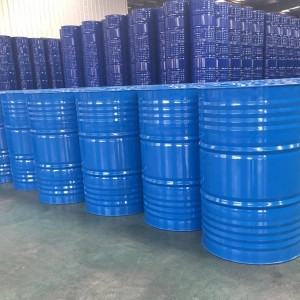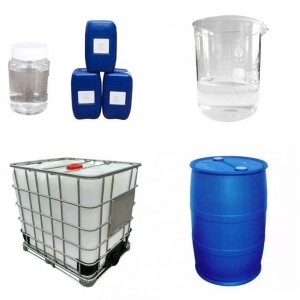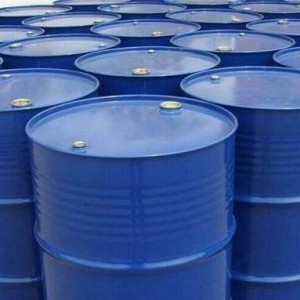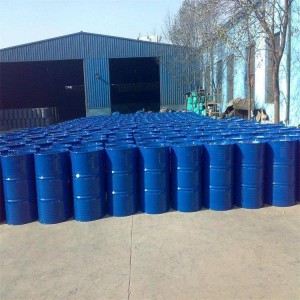Industrial Grade Ethylene Glycol From China
Introduction
Ethylene glycol is a colorless, odorless, sweet liquid, and has low toxicity to animals. Ethylene glycol is miscible with water and acetone, but has a low solubility in ethers. Used as a solvent, antifreeze and raw material for synthetic polyester
Ethylene glycol is mainly used to make polyester, polyester, polyester resin, hygroscopic agent, plasticizer, surfactant, synthetic fiber, cosmetics and explosives, and as a solvent for dyes, inks, etc., and as an antifreeze for preparing engines. Gas dehydrating agent, used in the manufacture of resins, and also used as a wetting agent for cellophane, fiber, leather, and adhesives.
Specification
| Model NO. | Ethylene glycol |
| CAS No. | 107-21-1 |
| Other Name | Ethylene Glycol |
| Mf | (CH2OH)2 |
| Einecs No | 203-473-3 |
| Appearance | Colorless |
| Place of Origin | China |
| Grade Standard | Food Grade, Industrial Grade |
| Package | Client′s Request |
| Application | Chemical Raw Material |
| Flashing Point | 111.1 |
| Density | 1.113g/cm3 |
| Trademark | Rich |
| Transport Package | Drum/IBC/ISO Tank/Bags |
| Specification | 160Kg/drum |
| Origin | Dongying, Shandong, China |
| HS Code | 2905310000 |
Application Scenarios
Ethylene Glycol is used mainly in the following ways:
1. Polyester resin and fiber production, as well as carpet glue manufacturing.
2. As antifreeze and coolant, it is widely used in automobile engine cooling system.
3. In the production of reactive polymer, it can be used to manufacture polyether, polyester, polyurethane and other polymer compounds.
4. In the petrochemical industry, it can be used in the fields of petroleum thickener, waterproof agent, cutting oil and so on.
5. In the pharmaceutical industry, it can be used to manufacture some drugs, cosmetics, skin care products, etc.
Storage
Glycol should be stored in a cool, dry, and well-ventilated warehouse. The storage temperature shall not exceed 30℃, nor shall it be mixed with oxidant, acid and base and other harmful substances. During operation, wear protective equipment and pay attention to fire and explosion-proof measures. Prolonged exposure to direct sunlight will cause glycol to break down gradually and may even produce toxic oxidative decomposition, so it is necessary to avoid prolonged exposure to sunlight.


